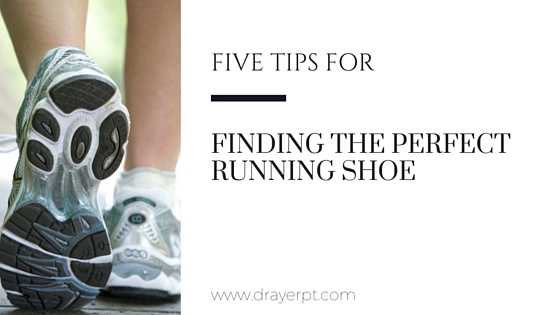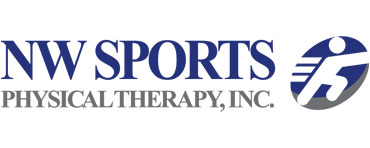5 Tips for Finding the Perfect Running Shoe
Sep 14By: Andy Patterson
Asics, Brooks, Mizuno, Nike, New Balance, Saucony. The list of running shoe brands goes on and on, and there are many good options.
But finding the perfect shoe for your feet and running style is ab
out more than the latest and greatest brands and gimmicks. Here are five tips to get you on the right track:
- Make sure the shoe fits properly. This may seem obvious, but some runners do not know what the proper fit is. You should always measure the fit of your shoe while standing. You should be able to fit a thumb’s width between your longest toe and the end of the shoe (and the big toe is not always the longest toe). For appropriate shoe width, make sure that your entire foot stays within the insole. It may be helpful to take the insole out of the shoe and stand on it to help see this.
- Shop at the end of the day. Your feet swell as you go through the day and when you run. By shopping later in the day, you will know how the shoe will feel when you are a few miles into your run, which is usually when runners start to notice any issues with their shoes. It is particularly helpful to shoe shop later in the day if you tend to run in the evenings after work, as your feet will already be more swollen when you start your run than they were when you first woke up.
- Shop at smaller running stores. These stores tend to have well-trained staffs that not only know a lot about shoe styles and brands but also have a lot of personal experience with running shoes. Big-box retailers are much less likely to offer this expertise. Also, most stores that cater to runners will have treadmills, which will allow the trained staff to analyze your gait and makes suggestions based on the way you run. They are trained to determine whether you run in a neutral foot position, over-pronate or supinate and can then suggest the best shoes for your running style.
- Take the shoes for a test run. If the store does not have treadmill, ask whether you can run for a few minutes in the parking lot. If the shoes are not very comfortable after a short test run, you can bet they will not be comfortable five miles into that training run. Some specialty running stores will allow you to buy a pair of shoes and run in them for 30 days. If you do not like the shoes after 30 days, you can return them and select a new pair. This is an excellent perk; however, you generally have to sign up for some type of loyalty/VIP package to get this deal.
- Buy new running shoes regularly. Determining when you need new running shoes is generally based on how many miles you have run in them. Opinions differ, but almost all running gurus say your shoe mileage should top out at 500 miles. After that distance, you deserve a new pair of shoes.
These five tips will get you started in the search for the best pair of shoes for you, whether you are training for a marathon or just want to get off the couch and get moving.
But whatever you do, don’t fall for these common running shoe-buying mistakes:
Buying a shoe based on color or aesthetic appeal. Everyone wants to look good when they run, but if your feet hurt too bad to use your new shoes, what’s the point?
Buying a shoe based on what friends/other runners say worked for them. Chances are you have a totally different running style and shape of foot, so what worked for them probably won’t work for you.
Assuming your size. Because you wear one size in dress shoes and sandals does not mean you wear that same size in tennis shoes. Sizes also vary from brand to brand, so if you are trying a new brand, don’t assume you will wear the same size as your old brand. Refer to tip No. 1 above to help determine which size fits you.
Don’t buy the cheapest shoe to save money. For high-quality running shoes, you should expect to pay $80 or more. It’s not worth skimping if you can’t run that $75 race because of a training injury caused by your shoes.
